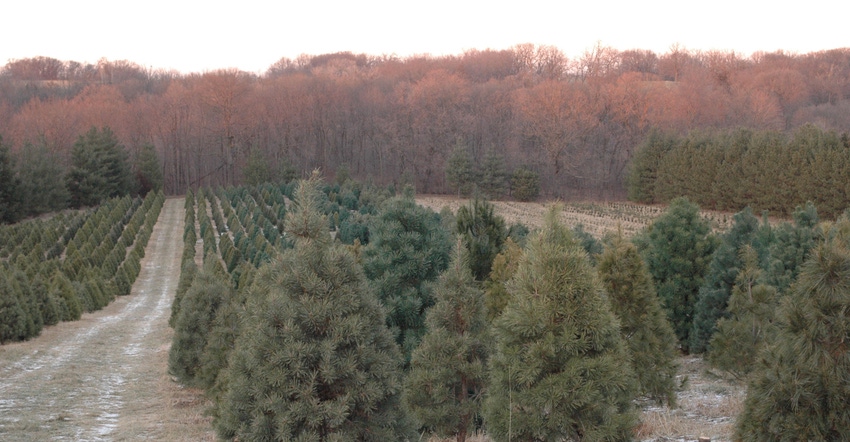March 19, 2019

By Dave Bartemes
A bill introduced in the Iowa Legislature earlier this year threatened to limit the ability of governments and private organizations to purchase new land for conservation and public use. Iowa Senate Bill 5 sought to repeal the property tax exemption for forest and nut plantations beginning Jan. 1, 2020.
This bill failed to make the first funnel deadline on March 8, which means it is now dead for this year’s legislative session. But Senate Bill 5 or a similar bill will likely be re-introduced next year. Citizens of Iowa need to understand the threat this type of legislation poses.
Let’s look at why we have a property tax exemption for forestland in Iowa, and the good that this exemption has created over the years.
In 1906, the Iowa Legislature enacted the Forest and Fruit Tree Reserve program to encourage landowners to plant and maintain woodlands and fruit trees in order to restock marginal croplands with trees. The original Iowa landscape had been reduced from approximately 12% tree cover to less than 2% tree cover since the pioneers entered Iowa and used the wood to build their farmsteads. The Forest Reserve program has been successful, and today approximately 7% of the landscape has been returned to productive forestlands. Senate Bill 5 as it was introduced this year would preserve the exemption for fruit trees but would eliminate the exemption for forests and nut trees.
Iowa woodlands produce some of the best hardwood lumber in the world. The woodlands, principally located on land that is marginal for row crop production, have revived a timber industry that supports 80 sawmills with a steady supply of high-quality logs. The forestry industry in Iowa has rebounded from almost nothing in 1906 to a $4 billion industry employing over 15,000 people. If Senate Bill 5 is passed by both houses of the Iowa Legislature and signed into law by the governor, this vibrant and growing industry is in danger of being lost.
State needs to encourage tree planting
Woodland owners must wait 75 years or more to harvest a crop, and during that time, they bear the cost of maintenance and care for their woodlands. The property tax exemption reduces the cost of woodland management and gives the tree farmer enough breathing room to see his tree crop through to harvest.
Woodlands provide the equivalent of a Safety 401(k) program for farmers who get caught in a 1980s type of financial crunch. That marginal 40 or 60 acres somewhere on your farm can come in handy when farmland values fall, and the bankers threaten to foreclose. Selling a few acres of merchantable timber could very well save the farm.
Without the property tax exemption, woodland owners will be forced to remove trees in favor of annual row crops. The effects of this crop conversion would be disastrous, for numerous reasons:
hundreds of businesses would face bankruptcy
more than 15,000 jobs would be at risk
conversion to row crops would further depress commodity prices
soil erosion would accelerate
water quality would be impaired
hunting and fishing industries would be severely curtailed
annual income from logs exported to Europe and Asia would decline significantly (currently just under $1 billion)
Why eliminate conservation incentive?
Supporters of Senate Bill 5 say the property tax exemptions for forestland increase the tax burden for other property taxpayers.
Sen. Amy Sinclair, the bill’s sponsor, argued before the Iowa Senate Natural Resources subcommittee that she believed it unfair for county residents to pay their taxes, while woodland owners don’t have to, if they are using the exemption. She pointed out that some landowners were from out of state, and some woodland owners are leasing hunting rights on their woodlands even though the law doesn’t permit this.
More than 30 people attended the legislative hearing. Most spoke against the bill as unfair to woodland owners and indicated that a repeal of the exemption would be a considerable hardship. Some noted that the state provides tax credits to lure industries into the state or remain in the state, and that woodland owners should have the same type of public support.
This tax credit provides benefits
The forestry industry provides good-paying jobs ($18 to $25 per hour) that are centered in the rural parts of the state. Our rural counties have experienced loss of jobs and citizens over the past 20 years as young Iowans have been forced to move to high-population centers to find employment. It doesn’t make sense for the Legislature to end a program that has proven successful and risk the loss of more rural businesses and jobs.
Ending the Forest Reserve program for woodland owners is counterproductive when more people find it necessary to leave their homes, exacerbating the already poor rural job market. When people leave rural communities, property values fall. The result is rural counties will continue to lose their tax base. On the other hand, continued growth of the forestry industry may be the tonic rural Iowa needs to flourish.
While Senate Bill 5 failed to make the first funnel of this year’s legislative session, shortsighted legislators will surely bring it back next year. The next time it is introduced, it is imperative that citizens contact their legislators and tell them to vote against Senate Bill 5 and this burdensome tax increase on woodland owners.
Bartemes is co-chair of the Coalition for Iowa’s Woodlands and Trees. You can contact him at [email protected].
You May Also Like




